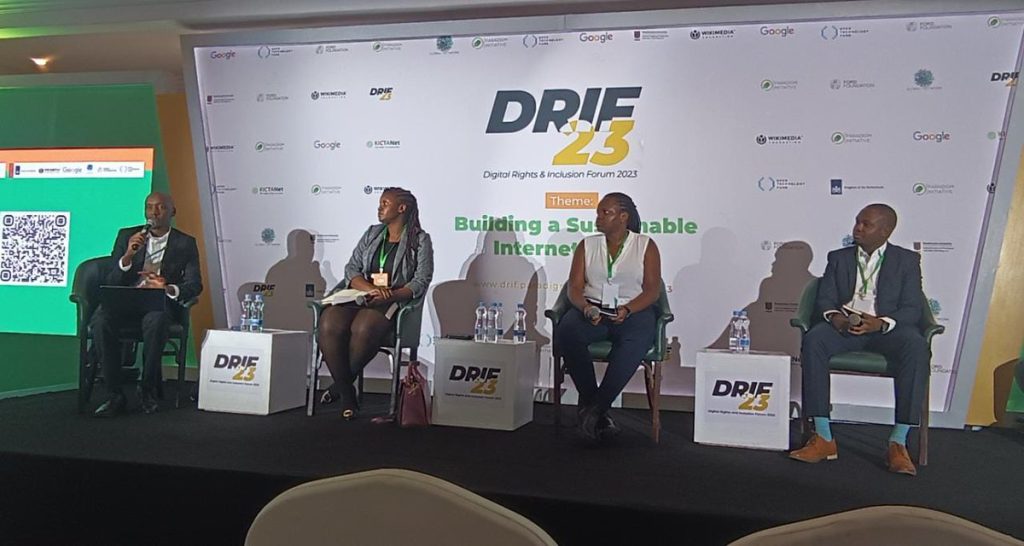Tatua Digital Resilience centre held a sensitization forum towards building digitally resilient social justice organisations in Africa. The session was part of the 2023 Digital Rights and Inclusion Forum (DRIF) held on 13th April 2023 in Nairobi.
The objectives of the sensitization workshop were to create awareness of the digital resilience challenges and opportunities for social justice organisations, explore ways of enhancing the digital resilience of social justice organisations, and review the available tools and resources for social justice organisations.
KICTANet together with other Africa Internet Rights Alliance (AIRA) coalition members established the Tatua Digital Resilience Centre to offer a bouquet of services to SJOs in East Africa to enhance their digital resilience, quickly respond to and recover from digital threats, and harness the power of technology to enable them to achieve their mission in a digitally changing environment.
Over the past decade, technology and digital platforms have emerged as critical instruments for the promotion of human rights. Social Justice Organizations (SJOs) in Africa are increasingly relying on technology and digital platforms for their work. However, they have not fully grasped the extent of their dependency on digital technologies, and neither are they fully aware of the opportunities and risks presented by the digital environment for their work. Some of the challenges experienced by organisations in the region include the shrinking civic space; restrictive and hostile operating environments; their limited capacity, knowledge, and awareness of digital resilience; the adverse impact of COVID-19; and funding limitations that inhibit their activities.
The speakers were Mwendwa Kivuva from the Tatua Digital Resilience Centre, Brian Nyali who is the Lead – Risk & Digital Forensics from Serianu Limited, Kanali Luseno from Ford Foundation, and Doreen Ochung from Access Now.
The session recognised that digital platforms have emerged as critical tools in promoting human rights within Social Justice Organizations (SJOs) in Africa. Challenges highlighted in the session were the lack of government involvement in creating a conducive environment to build infrastructure for resilience, limited infrastructure in storage and backup of data, low awareness of the digital resilience issues faced by the organisations – especially by board and leadership, low tech support on threats, the skills gap in using technology, outdated technology, unsecured new technology, data protection, availability incidence response points of contact, and the need for organisations to share sensitive information with parties that support their core business.
Other issues identified were how to remove structures that perpetuate inequality. – antiracism, antipatriarchy, anti ableism, anticolonial, and how development partners can better build public interest institutions while leveraging on technology as a solution to societal problems. It was also observed that there is an increase in the number of requests for support by organisations that offer digital resilience services.
Some of the solutions offered were an increase in capacity-building initiatives, building mechanisms for rapid response for human rights defenders, preventative and reactive support, and increased funding to organisations supporting social justice organisations.
The digital support lines available within the region are support@tatua.digital, and help@accessnow.org.

